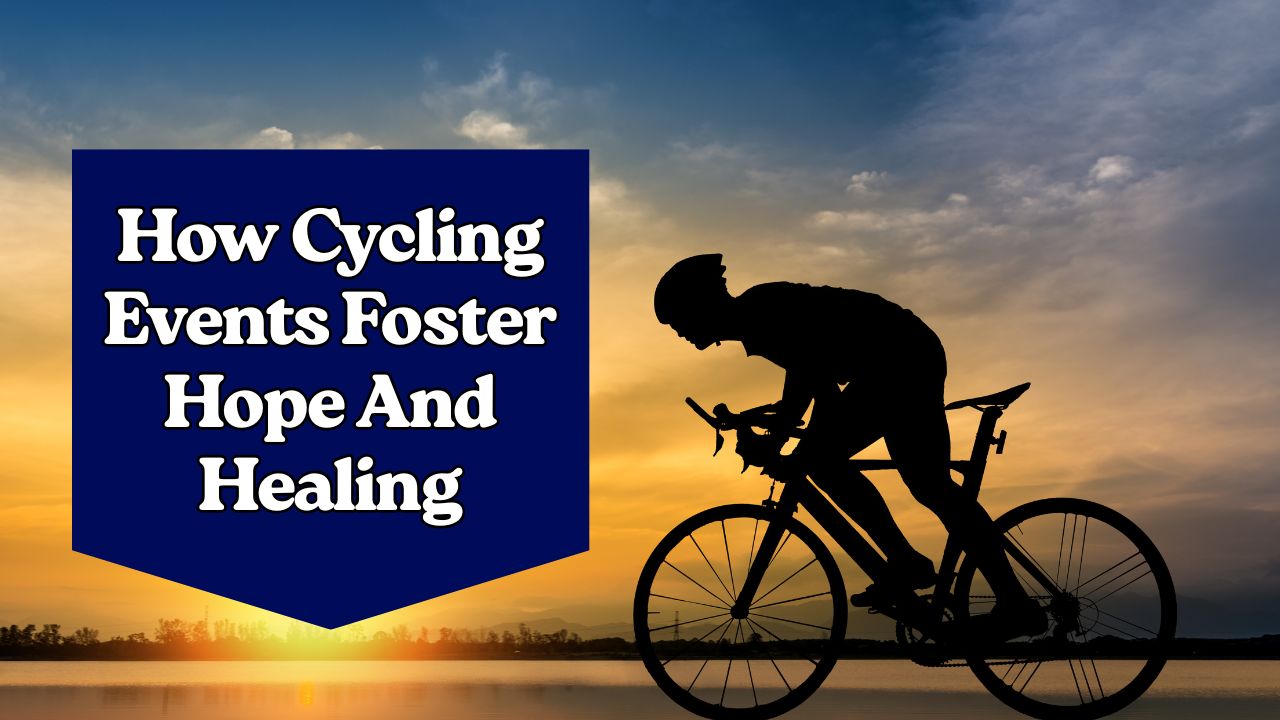Cycling has always been more than just motion—it’s emotion in motion, a powerful catalyst for mental, physical, and social renewal.
From coast-to-coast rides raising awareness for mental health to trishaw journeys rekindling joy for seniors, these events embody resilience, solidarity, and transformation. In 2025, an array of cycling-for-a-cause events is rewriting narratives of struggle into stories of hope and healing.
Riding for Mental Health & Community Resilience
In 2025, cycling events continue to power conversations around mental health. The Ride for Mental Health in New Paltz, New York, organized annually, features scenic routes—25-, 50-, and even 100-mile paths—raising funds for mental illness treatment and research at a major hospital.
Participants ride amid nature, fundraising zones, and communal support, all aimed at crushing stigma and spreading awareness through shared motion.
Meanwhile, a very personal journey unfolds along Britain’s coastline—one man, covering 1,400 km, rides to uplift men’s mental health, inviting peers into open dialogue and solidarity.
Far beyond athleticism, each pedal stroke becomes a metaphor for breaking silence, forging connection, and saying: You are not alone.
Cycling for Cancer Survivors & Grief Conversion
In Canada, The Ride to Conquer Cancer remains a juggernaut of hope.
Tens of thousands of riders converge annually on a 200-km, two-day journey from Toronto to Niagara, raising over $300 million in Ontario alone—and over $550 million nationwide—for cancer research and care. It’s a testament to collective strength, symbolizing survival and solidarity in motion.
Another event, Cycle For Hope in Georgian Bay, sees cyclists of all ages choose from six picturesque routes to support local cancer patients, survivors, and caregivers.
Such rides underscore how communities unite around the pedals to carry each other through struggle and healing.
Commemorative Rides- From Sorrow to Solidarity
Ride For The Living, a powerful four-day pilgrimage in Kraków, merges remembrance with rebirth. Cyclists journey 60 miles from Auschwitz-Birkenau to the Jewish Community Centre, weaving together history, healing, and human resilience.
In its 2025 edition—marking the 80th anniversary of liberation—the ride reaffirmed cultural revival and unity. It’s a ride not just of miles, but of memory and meaning.
Volunteer-Powered Rides for Seniors & Inclusion
One of the most heartwarming movements is Cycling Without Age, offering free trishaw rides for seniors across over 50 countries. Guided by volunteers, these gentle journeys restore dignity, joy, and connection—literally bringing the “wind in your hair” back into the lives of elders.
In countless stories, nursing home residents rediscover familiarity and freedom, while volunteers bridge generations through companionship and storytelling.
Individual Stories- Pedaling Through Pain to Strength
Cycling doesn’t only heal physically—it heals emotionally. In Lucknow, individuals like Prabhat Ranjan shed 35 kg and found emotional resilience by returning to cycling.
His transformative journey echoes those of many who overcame chronic ailments, grief, or illness—whether battling hypertension, arthritis, thyroid issues, or the emotional scars of cancer. On two wheels, they’ve reclaimed mobility, confidence, and inner peace.
And for competitive athletes, the road to recovery can also be about mental health. In the pro cycling world, mental health struggles are gaining visibility—depression, burnout, addiction, and anxiety affect a significant portion of riders.
But with stories of comebacks, like a British pro cyclist preparing to return after a year-long hiatus for mental health, cycling becomes a pathway back to optimism and strength.
The Science of Healing on Two Wheels
What makes cycling so therapeutically potent?
- Mood Enhancement & Stress Relief: Aerobic activity floods the body with endorphins, reducing anxiety, lowering the risk of panic, and offering clarity.
- Community & Shared Purpose: Group rides, charity events, and shared challenges combat isolation and foster communal belonging.
- Inclusive Movement: From veteran riders to assisted trishaw passengers, cycling is accessible to varied ages and abilities.
- Emotional Meaning: Commemorative and symbolic rides connect riders to deep stories—grief, survival, remembrance—that transcend individual experience.
Cycling isn’t just exercise—it’s emotional infrastructure.
Quick Overview of Key 2025 Events
| Event | Purpose & Impact | Highlight Features |
|---|---|---|
| Ride for Mental Health (NY) | Awareness and research funding for mental illness | Multiple routes, community, scenic ride |
| UK Coastal Solo Ride for Men’s Mental Health | Breaking stigma, sparking male connection | 1,400 km solo campaign, peer inclusion |
| The Ride to Conquer Cancer (Canada) | Largest cancer-fundraising ride | 200 km over two days, massive fundraising |
| Cycle For Hope (Georgian Bay) | Local support for cancer-affected community | Six scenic routes, regional healing |
| Ride For The Living (Kraków) | Holocaust remembrance and cultural renewal | 60-mile historic ride, pilgrimage spirit |
| Cycling Without Age (Global) | Senior mobility, stories, joy via trishaw rides | Free volunteer rides, restored independence and joy |
| Personal Transformation Stories | Mental and physical wellness recovery via cycling | Weight loss, mobility gains, emotional rehabilitation |
| Pro Cyclist Mental Health Recovery | Healing from burnout and depression through space and self-care | Comeback after year-long pause, new performance highs |
In 2025, cycling continues to transcend sport. These pedals of purpose spark hope, healing, and human connection across continents and causes.
Whether it’s paddling through remembrance, grief, isolation, or personal health struggles, each event—public or private—reveals how movement can mend.
So, grab your helmet, join a ride, or plan your personal cycling journey. Because healing isn’t just a destination—it’s discovered in every turn of the wheel.
FAQs
Yes—they combine physical exercise with emotional support and community belonging, offering a holistic way to reduce anxiety, depression, and isolation.
Not at all. Many events offer shorter, accessible routes, virtual participation, or assisted formats like trishaw rides to include people of varied abilities and fitness levels.
Absolutely. Solo journeys like the UK mental-health ride or intimate community events can spark connection, raise awareness, and start vital conversations—one pedal at a time.
